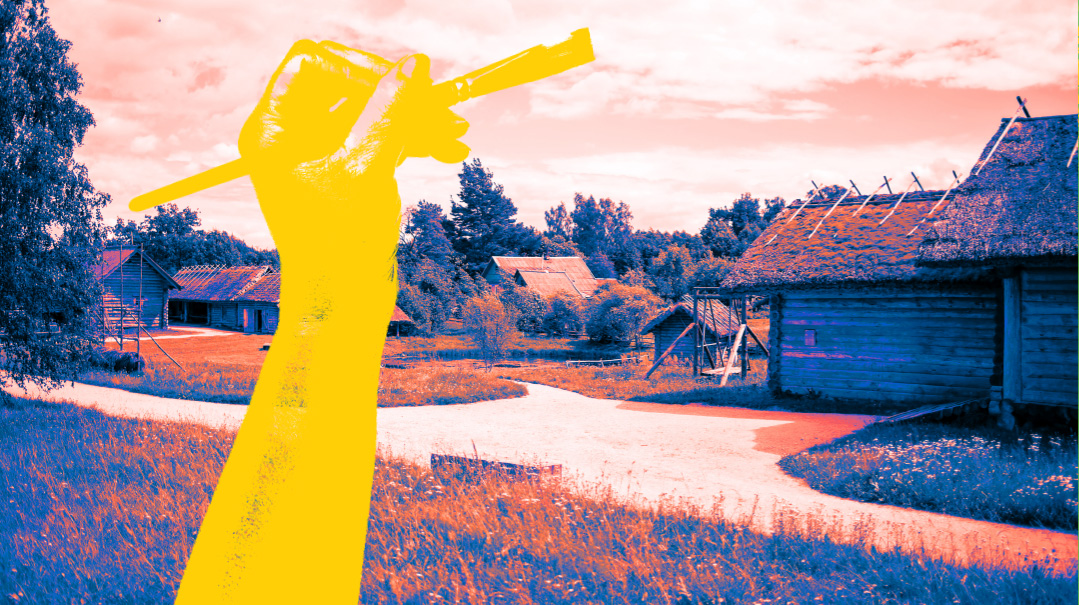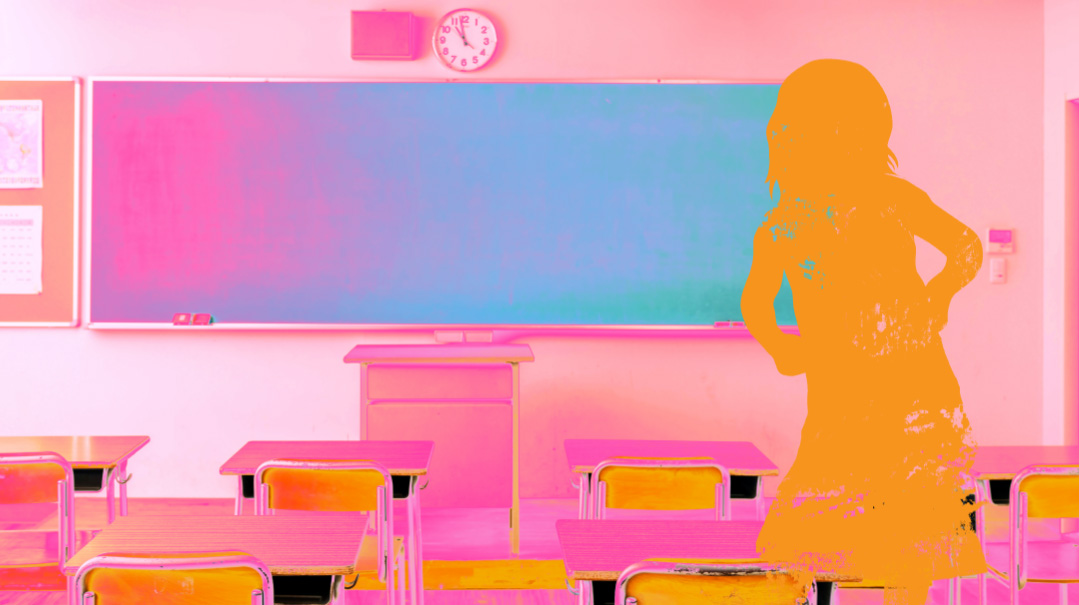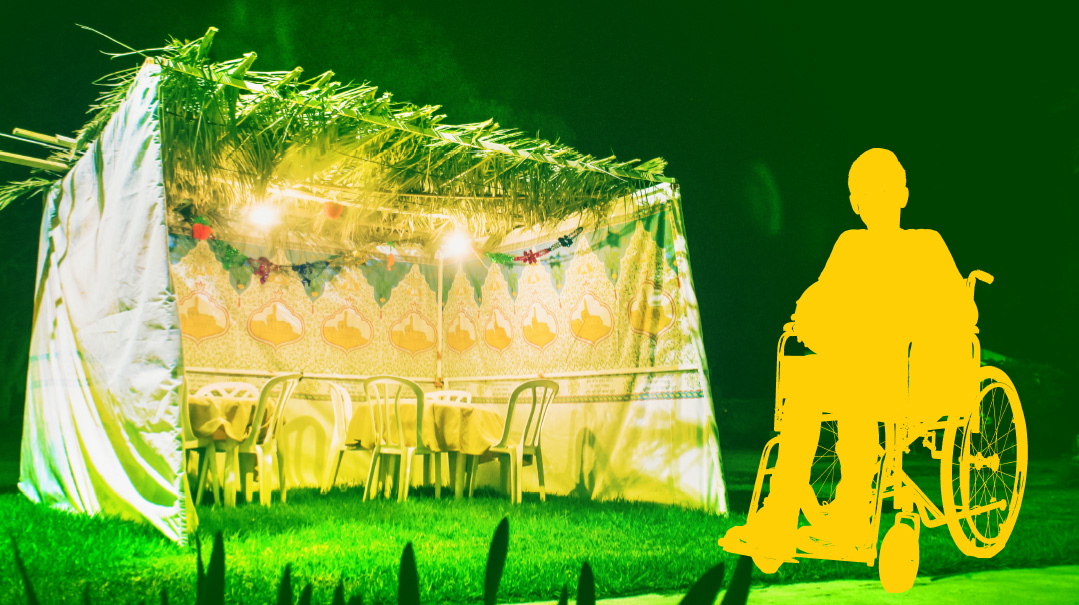The Painting

She looked down at the canvas, moving it in the moonlight until she could see the image it held

Russia, 1880
The day he decided he would need to do miniatures was the same day Mama said they couldn’t afford supplies and Papa said they couldn’t store any more large canvases. Yankel wasn’t surprised. He knew funds were tight. And he knew Papa didn’t appreciate his art. “It’s not going to put shoes on your feet,” he would say. But of course he would say that. Papa was a shoemaker, ever practical.
Yankel decided that if he made miniatures, he would be able to continue, both from a cost perspective and a storage one. There was also the matter of his rebbi, who didn’t really appreciate Yankel’s art at all. You should be learning, the rebbi would say. What Yankel knew but wasn’t able to explain or even put into any words, was that creating art helped him understand Torah. When he was drawing or painting, sometimes the words of the Gemara would just become clear.
What Yankel really wanted to paint, and which he would now do in miniature, was his Alter Zeidy. But he wouldn’t paint him sitting in front of a sefer, which is what he did almost all the time. He would paint him playing the violin. Because when the Alter Zeidy would get a fiddle in hand and bend his chin to it, stroking the strings with the bow, he seemed to be flying up and away, out of this world.
The Alter Zeidy once told him that when he was playing the violin, everything became clear to him, that he could see emes, clear as day. The Alter Zeidy said that when he played, things made sense. That was what art did for Yankel. He was fortunate, at least, that he could make some miniatures. The Alter Zeidy had never owned a violin.
Russia, 1881
When Fradl ran from the oncoming pogrom, she didn’t have time to think. She just grabbed the first bag she could reach — they had prepared them after the assassination of Alexander II, just in case — not caring whose sack it was. The only thing in her mind was escape escape escape, which ran through her head like a kind of one-word psalm. The bag slapping against her side, she ran through some neighboring fields and then dove into the haystack behind the Mishkovskies’ old barn. Only then did she realize she was completely alone.
Hours passed, and when things finally went quiet, Fradl felt she could lift her head out of the hay. Everything was still and dark and silent, but the acrid smell of smoke and ash lingering in the air was unmistakable. Her heart ached to go and check on her home and family, but a niggling fear held her back. Crouched in the straw, she plunged her hand into the sack, feeling about for an apple or scrap of bread. She did find an apple. She also found a small piece of canvas, smaller than the palm of her hand. She could smell the faint scent of oil paint from it, even with the reek of fire in the air. Yankel. She thought. I got Yankel’s bag.
She looked down at the canvas, moving it in the moonlight until she could see the image it held. The Alter Zeidy, playing his violin, flying above the shtetl rooftops. Fradl closed her hand around the image, two tears making silent tracks down her cheeks. The next day, Fradl would discover that the image was all she had left.
New York, 1920
When Jacob was clearing out the tenement on the Lower East Side, he never expected to find anything of value. The crowded, dark, dingy space held plenty of memories, but his poor parents had never had anything of worth. At least now he was moving into a larger space and his parents would be able to live out their last years in relative comfort.
As he lifted his mother’s battered old Tzena U’Rena, finally clearing the shelf, Jacob spotted a yellowed slip of something stuck between the shelf and the wall. Curious, he slid it out from the crack and turned it over, his jaw dropping. He had never known his parents to own any piece of art or even any décor items, beyond the few pieces of embroidery his mother had created over the years. And yet, here, in his hand, was an exquisite miniature – a bit fantastic, to be honest, but of clear skill. A little violinist playing his instrument, flying above the rooftops of his shtetl, oblivious to all but the music.
This had to be the one his mother had told him about. The one she found in her bag after the pogrom. The thing that had kept her going all the years when she immigrated to America alone, the idea that she could fly away… She had thought it was lost. Jacob swallowed hard. He hoped she still had enough eyesight to drink in the pleasure of her brother’s painting again.
New York, 1936
It was a total passing whimsy, the kind of thing only she would do, Chava reflected, as she tucked the little painting into her son’s trunk. It had been in the family so many years, and yet it seemed only reasonable to send it back to Eastern Europe with him. She knew it was absurd, but somehow she felt the little violinist, some zeidy’s zeidy’s zeidy, perhaps, would watch over her dear son as he went to learn Torah in the alter heim.
She smiled at the idea of her son unpacking his belongings and coming across it. Yes, imagining that moment truly did bring her some pleasure, painful as this parting was.
Poland, 1939
Yaakov tried to remain optimistic, but as the days slipped by, so did the opportunities. There were no more ways out. War was here. He was stuck. He would go down to the ticket office one more time today and see if there was anything, anything, anything that they could do. But it was looking more and more likely that he would be here for the duration of the war.
He looked around his little rented room and tried to think of whether there was anything, anything, anything at all, he could use to bribe the officials to help him escape. His eye fell on the little painting his mother had stuck in his trunk. It was very old and very skillfully done. If only he could pick himself up and fly like the little violinist in the picture. He would escape over the rooftops, if only he could. But other than fueling his imagination, the painting probably held no value. Yaakov closed the door and went out into the street, not knowing he would never return.
New York, 1990
Fraidy often thought about how her grandfather had survived the Holocaust. He said that during the absolute worst times, he would picture a little painting he had once owned: a violinist flying up and over the rooftops. He would pretend he was that violinist, flying up, up, and away. And somehow, miraculously, imagining it helped him hold on.
It was a marvel, really. He shouldn’t have even been in the Holocaust. He was an American bachur stuck in the wrong place at the wrong time. And he had survived by escaping into the fantasy of some tiny painting?! Fraidy wished she could see her grandfather’s painting. Although he had described it numerous times, she was sure it couldn’t be quite as beautiful as he made it sound. But one thing was clear, if she ever did see it, she knew she would recognize it.
New York, 2005
“You should go, Chavi,” her mother urged her, pushing the brochure back across the table.
Chavi looked down. Confiscated Art, Confiscated Lives, the headline proclaimed. “Ma, I don’t know anything about art…” she protested. “I can’t tell a Monet from a Matisse, a Van Gogh from a Vermeer.”
Her mother sighed. “It’s not about knowing the artists or even appreciating the art. It’s about supporting the museum’s efforts. They’re going to great lengths to show works that were forcibly taken from Jews during the Holocaust, and to bring attention to aspects of the Holocaust that the general public might be less familiar with. The Rav said everyone who is able should go. And the proceeds are all benefitting survivors! I can’t get away from work, but you’re old enough; I’d like you to go in my place.”
Chavi nodded. Museums made her kind of nervous. And Holocaust exhibits made her especially nervous. She didn’t like to spend too much time thinking about what her great-grandfather had gone through…
Within moments of stepping inside, she’d forgotten her fears. These works were absolutely stunning. But there was one in particular that immediately caught her eye. It was a tiny thing, really, set off by a large mat, and an even larger frame. A little frum violinist flying above the shtetl rooftops…
She leaned close to look at the object label.
Title: Unknown
Artist: Unknown
Former Owner: Unknown
Provenance: Unknown, likely Galicia or Russia
Date: Unknown
The museum didn’t know. But Chavi did.
A great-grandfather in the Holocaust, who inherited the picture from his mother, who got it from her grandfather, who got it from…
Her heart soaring like the fiddler, she went to fetch the docent.
(Originally featured in Mishpacha Jr., Issue 931)
Oops! We could not locate your form.



